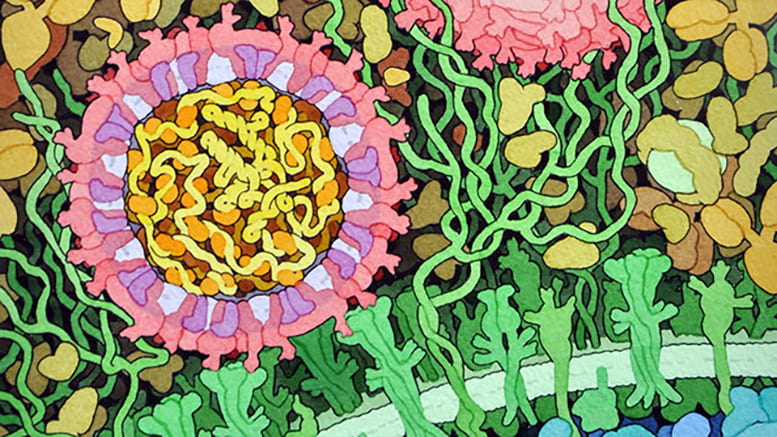In a new study of the Zika virus, Northwestern University scientists have discovered a key mechanism used by the virus to evade the antiviral response of the cell it is attacking. This finding contributes to a better understanding of how viruses infect cells, overcome immune barriers and replicate — information that is essential for fighting them.
“Understanding how one virus escapes or modifies the host antiviral response may help us learn about other viruses and also contribute to pandemic preparedness,” said Curt Horvath, the paper’s corresponding author, and professor of molecular biosciences in the Weinberg College of Arts and Sciences and professor of medicine and of microbiology-immunology at Feinberg School of Medicine.
 “Here we looked at a Zika virus protein known to inhibit the antiviral response. Interferon signaling is the cell’s immediate response to an invader. If Zika can block this first line of defense, it can replicate in the cell,” said Horvath.
“Here we looked at a Zika virus protein known to inhibit the antiviral response. Interferon signaling is the cell’s immediate response to an invader. If Zika can block this first line of defense, it can replicate in the cell,” said Horvath.

